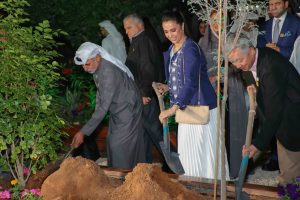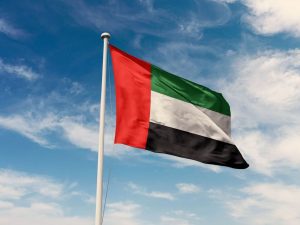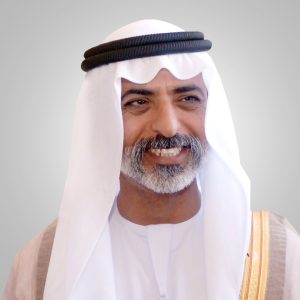ABU DHABI, 25th November, 2018 (WAM) — On 2nd December, the UAE marks its 47th National Day, through official and popular celebrations that reflect the significance of the anniversary of the establishment of the Union.The celebration has gained special importance this year, as it will coincide with 2018 being the ‘Year of Zayed’, which was announced by President His Highness Sheikh Khalifa bin Zayed Al Nahyan, to mark 100 years since the birth of the country’s Founding Father, the late Sheikh Zayed bin Sultan Al Nahyan.This year, the UAE inaugurated ‘The Founder’s Memorial’, as a beacon of light for future generations, with the aim of introducing them to the legacy of the country’s founder and the creator of its civilisation and development, as well as to represent a historic connection between the eras and generations, which have witnessed the establishment of the Union. The Founder’s Memorial is a permanent national tribute dedicated to commemorating the life, legacy and values of the Founding Father of the UAE. A place to learn about Sheikh Zayed through art, nature, words, stories, and multimedia experiences, the Memorial offers visitors a range of personal encounters with the late Sheikh Zayed as a man and as a leader, enabling people to gain a deeper understanding of his vast influence on the UAE and the wider world.In 2018, the UAE has been recognised as a model of overall development, due to its scientific, economic and social accomplishments, which are significant additions to the achievements accomplished during its five-decade journey, through which the wise leadership has continued to follow to ensure a better tomorrow for its people, as well as all Arab and Islamic nations.The UAE’s intellectual, political, military and social influence has become widespread across the region, through its leading regional and international efforts to fight extremism and terrorism, and deal with the challenges facing the region according to a clear assessment of these challenges and its partnerships with influential Arab countries.The UAE has continued to anticipate the future by launching the first Emirati-made satellite and occupying advanced positions in many international development indexes, as well as by issuing new legislation, in coordination between the government and the Federal National Council, FNC, leading to its many accomplishments and developments on various levels and in all sectors.The country’s sound and unwavering political stances in the region, its role in consolidating Arab sovereignty, and its efforts to face the region’s challenges have contributed to the region’s success in overcoming many of its challenges.The UAE’s foreign policy has witnessed active and tangible developments in the Arabian Gulf, Arab and international arenas, due to its active foreign policy in dealing with various international issues. These efforts have enhanced the country’s stature and strengthened its friendships across the globe.The success of the UAE’s diplomacy and policy, which calls for openness to the world and the establishment of relations and strategic partnerships, is reflected by the international stature granted to the Emirati passport.Below, the achievements of the state over the past year across a number of key sectors are explored.Space:In 2018, the UAE entered the age of space manufacturing after it succeeded in launching ‘KhalifaSat’, which was entirely developed and manufactured by Emirati engineers.The number of satellites operated by the UAE has risen to nine multi-functional satellites, while the value of the UAE’s investments in the sector rose to over AED22 billion.In 2018, the UAE strengthened its leadership in the space sector through a series of achievements that confirm that it is on the right track to reach Mars in 2117.On 3rd September, 2018, the UAE announced the selection of the first two Emirati astronauts, Hazza Al Mansouri and Sultan Al Neyadi, and in October 2018 the UAE Space Agency concluded a historic agreement with the American space agency, NASA, to expand their cooperation in space exploration and manned space voyages.Tolerance:The UAE has maintained its international presence in the area of tolerance, and has continued its efforts to promote coexistence and combat extremism and hatred through an institutional system managed by the Ministry of Tolerance, along with many UAE-based intellectual and religious institutions.The UAE also strengthened its position as an international centre of moderation and tolerance, through hosting a series of events, most notably the ‘World Tolerance Summit’, which was a culmination of the series of activities and events witnessed by the country during the National Tolerance Festival, held this year under the theme ‘On Zayed’s Approach’, from 9th to 16th November.Legislation and Laws:In 2018, the UAE continued developing its legislative structure and issued many decrees and federal laws, with the aim of improving the community’s security and safety, achieving economic and social stability for the country’s people, and establishing the principles of responsibility, transparency and efficiency among various government authorities.One of the notable decrees issued in 2018 is Federal Law Decree No. 20 for 2018, which relates to countering money laundering crimes and combatting the funding of terrorism and illegal organisations, as well as Federal Law Decree No. 9 for 2018 regarding public debt.Law Decree No. 19 for 2018 on foreign direct investment, FDI, is another important decree issued in 2018, while President His Highness Sheikh Khalifa bin Zayed Al Nahyan issued Federal Law No. 5 for 2018 regarding the endowments ‘Waqf,’ as well as a federal law authorising the UAE Cabinet to grant temporary licences for testing of innovations that use future technology and its applications, such as artificial intelligence. The law provides a safe testing environment for legislation that will govern the use and applications of future technology. The study to develop new legislation will begin with the launch of the RegLab in January, which will be the largest laboratory to anticipate and develop future laws governing the use and application of technology. It is hoped that the lab will allow the UAE to become a regional and global leader for attracting innovation and advanced technology applications. These include self-driving vehicles and artificial intelligence in health.Competitiveness:The UAE has the most competitive economy in the Middle East and North Africa, according to a study from the World Bank Group and the World Economic Forum.The Arab World Competitiveness Report 2018, published last August, ranked the UAE as the 17th most competitive amongst 137 countries.The UAE’s competitiveness rating was supported by strong rankings in infrastructure, goods and market efficiency, labour market efficiency, financial market development, business sophistication and the country’s macroeconomic environment, among other factors. It has consolidated its leadership in the region as the main tech and innovation hub.The UAE ranked first in 11 global competitiveness indices among six different competitive reports (2017- 2018), issued by the World Economic Forum (WEF) the World Bank Group (WBG), the European Institute of Business Administration (INSEAD) and the International Institute for Management Development (IMD).These indices are part of the UAE Government’s objectives outlined in the ‘Project Number One’ initiative for 2017, and are in line with the Ministry of Finance’s commitment to enhance the country’s competitiveness levels globally.The UAE ranked first in three indices in the Global Competitiveness Report 2017-2018, issued by WEF, including Efficiency of Government Spending Index, Annual Inflation Rate Index, and Absence of Effect of Taxation on Incentives to Invest. UAE also ranked first in Ease of Paying Taxes and Ease of Doing Business indices based on the 2017 report issued by WBG. In the Travel & Tourism Competitiveness Report 2017 – issued by WEF, the country ranked first in Effect of Taxation on Incentives to Invest index, and Low tax rate (per cent profit) index.The Global Innovation Index by INSEAD reported that the UAE ranked first in Ease of Paying Taxes, and the World Competitiveness Yearbook by IMD reported that the country came in first in the Collected Personal Income Tax (per cent) and Collected Indirect tax Revenues (per cent) and Consumption Tax Rate. Additionally, UAE ranked first in Extent and Effect of Taxation, according to the Global Talent Competitiveness Index by INSEAD.The UAE capital, Abu Dhabi, also leads as the safest cities internationally for the second consecutive year, surpassing 300 cities, including Tokyo, Basel, Munich and Vienna, according to the website Numbeo.com, which contains user contributed data about cities and countries around the world.Lawmaking:The Federal National Council, FNC, is keeping pace with the country’s development, due to a political empowerment programme launched by President His Highness Sheikh Khalifa bin Zayed Al Nahyan in 2005, which aims to enable the FNC to practice its constitutional competencies, increase its consultations and share decision-making with the country’s citizens.The UAE also succeeded in becoming a model of parliamentary work, which is characterised by awareness and caring, as the process of gradually strengthening the FNC’s competencies became clear during the empowerment programme, which included the election of half the FNC’s members, strengthening the participation of women as members and voters, organising elections for the FNC’s membership, and increasing the number of electoral bodies.Over four decades, the FNC, through practicing its constitutional competencies, helped to develop the country’s legislative system to include all sectors, as well as to consider recommendations while discussing various national issues.In recognition of the UAE’s role in countering terrorism and extremism, Dr. Amal Abdullah Al Qubaisi, Speaker of the FNC, was elected President of the IPU High-Level Advisory Group on Countering Terrorism and Violent Extremism (HLAG), which has been established to serve as the global focal point for parliamentary activities related to counter-terrorism.Emirati Passport:The work accomplished by Emirati diplomacy, along with adopting a balanced and moderate foreign policy, strengthened the regional and international presence of the UAE, which succeeded in launching many initiatives to serve its citizens and other people from around the world.The UAE passport jumped another spot to become the third most powerful passport in the world, according to Passport Index (Global Passport Power Rank 2018).The success of Emirati diplomacy is highlighted by the stature of the Emirati passport, which rose to third place internationally, after agreements were signed with 163 countries to remove the requirements for pre-entry visas, according to the latest update in the Passport Index of the international financial consultations company, Arton Capital.The UAE travel document now has a visa-free score of 163, of these, UAE passport holders can enter 113 countries visa-free, while 50 countries will welcome them with a visa on arrival.”The United Arab Emirates’ positive diplomacy



